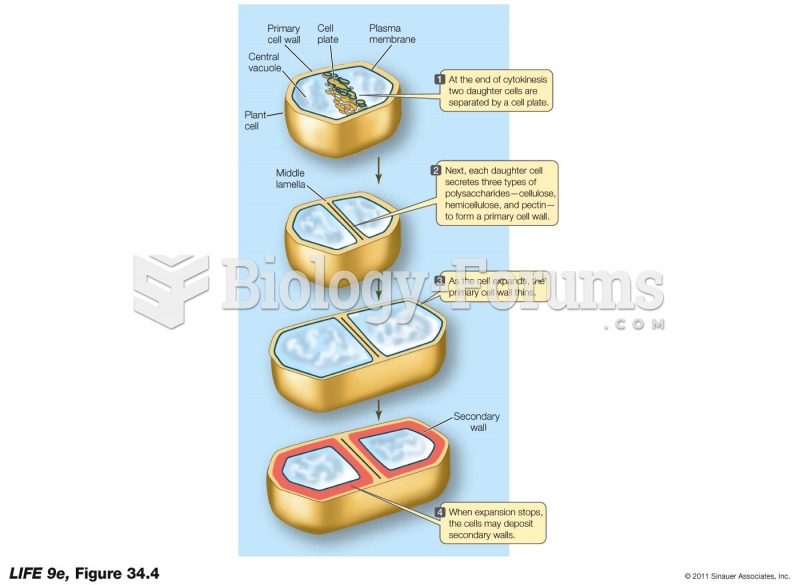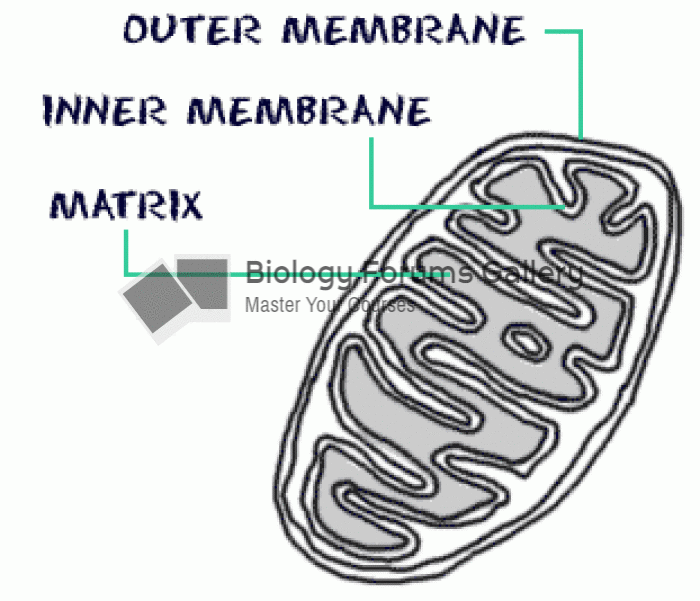|
|
|
Most childhood vaccines are 90–99% effective in preventing disease. Side effects are rarely serious.
Studies show that systolic blood pressure can be significantly lowered by taking statins. In fact, the higher the patient's baseline blood pressure, the greater the effect of statins on his or her blood pressure.
IgA antibodies protect body surfaces exposed to outside foreign substances. IgG antibodies are found in all body fluids. IgM antibodies are the first type of antibody made in response to an infection. IgE antibody levels are often high in people with allergies. IgD antibodies are found in tissues lining the abdomen and chest.
After 5 years of being diagnosed with rheumatoid arthritis, one every three patients will no longer be able to work.
Vaccines prevent between 2.5 and 4 million deaths every year.







